Rec Sports
As safe spaces shrink, immigrant youth find solace in ‘the beautiful game’
Help us tell the Oakland stories that matter to you and your fellow Oaklanders. This story was produced by El Tímpano, a civic media organization serving and covering the Bay Area’s Latino and Mayan immigrant communities. The original version of the story can be found here. In the winter of 2019, Adelaida, an immigrant from […]
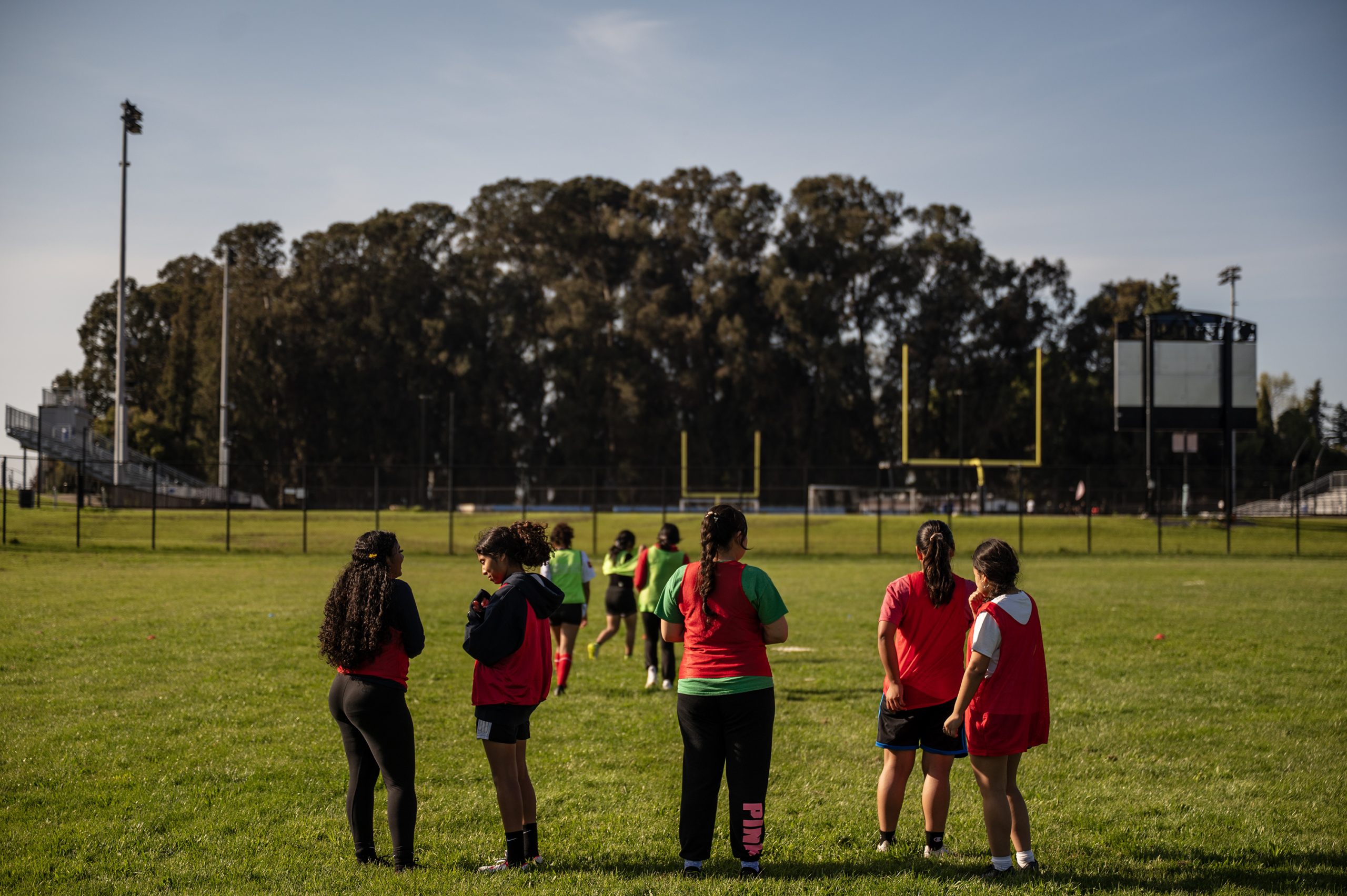

This story was produced by El Tímpano, a civic media organization serving and covering the Bay Area’s Latino and Mayan immigrant communities. The original version of the story can be found here.
In the winter of 2019, Adelaida, an immigrant from Todos Santos, a rural region in the northern highlands of Guatemala, arrived in the Bay Area. The timing was not ideal. The then twelve-year-old resettled in California just a few months before the pandemic shut down the kinds of communal spaces that could help a teenager adjust to a new life on the other side of the world. Cooped up at home, Adelaida stumbled through her online classes. She struggled to make new friends. The lockdown made the already difficult acculturation process even slower. “I never had a chance to go out, explore what was out there,” she said in Spanish. “It was very hard to adjust.”
As the years passed, Adelaida’s sense of isolation persisted. She was navigating the routine stress of any teenager’s high school life—grades, homework, the social scene—all the while thousands of miles from the familiar comforts of home. Then, one afternoon last winter, while walking home from school, Adelaida caught a glimpse of a scene that filled her with longing. A group of girls, roughly her age, enjoying the simple pleasure of an outdoor soccer practice. “They were laughing, having fun, playing so freely,” she recalled. “And I thought: ‘I want that.’”
Soccer, or the beautiful game, as it’s affectionately called, is a singular global institution. It’s estimated that upwards of 240 million people worldwide play it —roughly two-thirds the population of the U.S.—with a fan base that tops three billion. For its legion of devotees, the sport is transcendent: at once magic, religion, a language unto itself. For immigrant youth, the sport’s global appeal has served as a cultural bridge to their new homes, helping them build friendships that can ease the resettlement process.


These days, the field is also a quiet oasis from the current anti-immigrant moment in the U.S. Since January 20, the Trump administration has launched what it calls “the largest deportation operation in American history,” issuing more than 250 sweeping changes targeting the nation’s immigration system, including policies aimed squarely at migrant youth—moves that have chilled immigrant communities and made everyday life more fraught.
These changes have significant implications for immigrant youth in Alameda County, which has the second-largest population of unaccompanied minors in California, with more than 560 resettling in the community between October 2023 and June 2024, according to the latest data. As the administration targets young migrants, community members are reporting heightened levels of fear and uncertainty, said Katie Annand, an attorney at Immigrant Legal Defense, which provides legal representation to immigrant youth living in Oakland. That sense of fear can fracture “the sense of belonging that they are working so hard to find,” she explained. Finding community through soccer, she added, helps repair those ruptures.
As an example, Annand recalled recently asking a young client what activities brought him joy. When he mentioned soccer, she invited him to describe how the game made him feel. “And there was no hesitation,” Annand said. “His first words were: ‘I feel free.’”

Without sanctuary protections, safe spaces shrink
Since January 20, the administration has introduced a string of policies targeting migrant children. Officials have revived family detention—a practice largely endedunder the Biden administration and widely criticized for its psychological impact on children. They’ve announced plans to deport and prosecute hundreds of thousands of unaccompanied minors, terminated federally funded legal aid for those children, leaving some as young as two to navigate immigration court alone, and created a new data-sharing agreement between Immigration and Customs Enforcement and the Office of Refugee Resettlement.
That arrangement grants immigration agents access to personal data of children released to sponsors, as well as information about the sponsors themselves, who are often part of or connected to immigrant communities. The move could dissuade guardians from taking in children who arrive in the U.S. alone and erode the firewall between the Office of Refugee Resettlement and the Department of Homeland Security that the federal government previously maintained, said Sergio Perez, Executive Director of the Center for Human Rights and Constitutional Law.
“The idea by the Trump administration is: ‘Here’s a treasure trove of information that we can use to better understand where all the immigrants are and where to send our agents,’” Perez said. “If you are going to take in an undocumented child, you probably have some connection to that child—familial or societal. And if you yourself are part of an immigrant community, you might be less likely to do that, if you know ICE is suddenly going to be breathing down your neck.”

At the same time, the administration has stripped sanctuary protections from institutions once considered off-limits: schools and churches. The result, advocates warn, is a new layer of fear in spaces that once offered safety. Many expect this wave of policies to add another layer of emotional distress to an already difficult resettlement process.
The best way to respond, Perez argued, is to mobilize community in the broadest sense possible. That includes “city and county laws that protect information and those spaces as best as they can,” Perez said, as well as “civic society stepping up and saying: ‘Not here.’” Children, he added, “should be able to enjoy the sun. It’s better than being in the shadows.”
A network of care and community

Adelaida eventually found her place on the team. After passing the practice that day, she approached the coach and asked if she could join the program, which is run by the nonprofit Soccer Without Borders, which uses free soccer programming to help immigrant and refugee youth build ties to their new communities. Adelaida was brought on board, joining a squad of newcomer girls. She has since found solace in the world’s most popular sport. “It has helped me feel more integrated in this country,” Adelaida explained. She made friends on the team, which helped her feel more settled in her new home. The twin shocks of relocation and lockdown have faded. Now, Adelaida said, “ I feel at home. I say that I am from Oakland.”
Researchers and advocates who work closely with recent immigrants say soccer is one of the most effective, and accessible, tools for helping young people rebuild their sense of self after migration. Kristina Lovato, director of UC Berkeley’s Center on Immigrant Child Welfare, interviewed dozens of young adults and unaccompanied minors across California for a forthcoming study, including immigrant youth who joined organized soccer leagues. She was struck by how the game helped ease their transition. “It’s such a friendly way that immigrants can connect to one another, and for an hour and a half on the field, let go of the mental stress that is burdening their day,” she said.
This cognitive stress load is often exacerbated by the material demands of relocation, such as finding stable housing, securing employment, and repaying debts accrued during their journey. “Children arrive with a huge list of to-do’s and are stressed from the minute they get here,” Lovato said.

For many immigrant youth, the trauma of relocation captures just one emotional stage of migration. Ryan Matlow, a Stanford clinical psychologist who works with immigrant youth in the Bay Area, described numerous stages of psychological stress that accompany children across the arc of the migratory process: the trauma of leaving home, the trauma of the journey to the U.S., the trauma of crossing the border and the trauma of resettlement.
The rupture of leaving home can leave children unmoored and searching for a sense of belonging. For children who came from soccer-loving communities or households, the sport can help preserve their emotional ties to the countries and cultures they left behind, Matlow said. “Having opportunities to connect with practices and traditions that resonate with their cultural history is really valuable,” he explained. The social dynamics of team sports, Matlow added, can also provide emotional support during resettlement, helping children reestablish the sense of community they left behind.


Like Adelaida, Ana arrived in the U.S. just before the pandemic. In the early days, she was overcome by everyone she missed in Guatemala. She thought about her family and friends constantly as she tried to figure out her place in the East Bay. When school reopened, Ana decided to give soccer a try. Though she had never played before, she joined one of Soccer Without Borders’ girls’ leagues. The learning curve was steep but fulfilling. “I feel like I found my family here,” Ana said in Spanish. “Here, I feel safe. I keep meeting new people. I like to be here in this community. I have found the perfect place for myself.”
Another player in the league said the field lets her briefly tune out from the stress of daily life. “I put everything aside and have fun,” she said in Spanish. “It’s a safe space for me.”
Coaches and advocates emphasized the importance of maintaining emotionally safe environments as the political climate becomes more unwelcoming to immigrants. That means being attentive to how, and if, national politics are discussed on the field, explained Ye-Htet Soe, the program manager of the Bay Area chapter of Soccer Without Borders. “Some teams want to talk about it more, and others just want to play,” he said. For some players, bringing the administration or politics into team spaces risks damaging the psychological safety they offer. “The most important thing is creating a sense of belonging. And the way you do that through sports isn’t necessarily to talk about the issue at hand,” Soe continued. “Sometimes you need to let sport do its thing and create that sense of community, with an emphasis on fun and joy.”
Finding a voice on the field

On a bright Saturday afternoon in mid-April, Ana and her teammates stood in a straight line in front of their opponents after the referee blew the game’s final whistle. It had been a close, nail-biter of a game; while the two teams were evenly matched, one squeaked by with a victory after a late goal in the second half of the game. Friends and family cheered and groaned from the sidelines. Players were flushed.
Maddy Boston, one of the team’s coaches and a program manager at Soccer Without Borders Bay Area, gathered both squads at midfield for a ritual known as the positivity circle. Each player shared their name, country of origin and a compliment for someone on the opposing team.
Boston kicked off the circle with a peppy post-game recap, then opened up the floor. Ana stepped forward, shyly, praising two players on the opposing team for their crisp passing and stamina. “I loved the way you play,” she said.
Later, sitting on a bench, Adelaida reflected on what the team had given her. Being in the league had inspired a dream: she wanted to start a team of her own someday. “It all came from this team that helped me grow stronger as a person,” she said. Her ideal name for it?
United.

Rec Sports
Two proposed ballot initiatives that restrict sports and surgeries for transgender youth move ahead
Two proposed ballot initiatives targeting transgender youth are one step closer to a spot on the 2026 ballot. A three-member panel of Colorado officials known as the Title Board approved the petitions Wednesday. After completing another technical procedure, proponents can begin gathering signatures in a bid to be on the ballot. One initiative would require […]
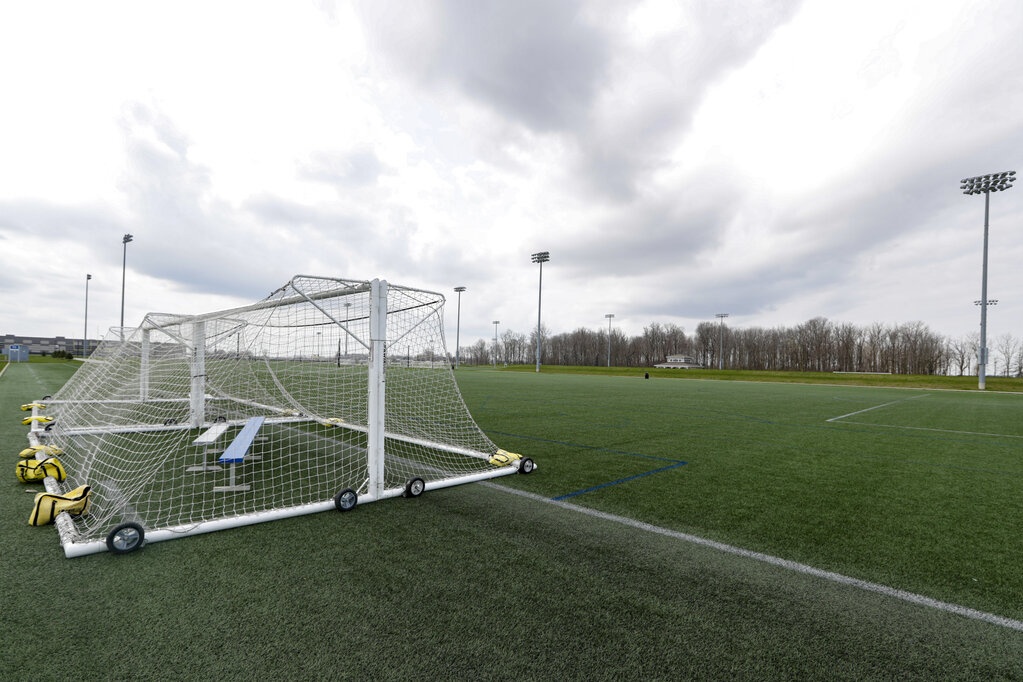
Two proposed ballot initiatives targeting transgender youth are one step closer to a spot on the 2026 ballot.
A three-member panel of Colorado officials known as the Title Board approved the petitions Wednesday. After completing another technical procedure, proponents can begin gathering signatures in a bid to be on the ballot.
One initiative would require K-12 and colleges to restrict participation on school sports teams to the participant’s sex, “as determined by certain aspects of their biological reproductive system.” The other proposes banning gender affirming surgery for transgender people under the age of 18.
Similar measures were rejected for the ballot last year because the board ruled they were too broad, violating the single-subject rule, which must be clearly expressed in its title.
Under the first measure, Initiative 70, “Male and Female Participation in School Sports,” K-12 schools and colleges must designate sports teams as male, female or co-ed and only allow students to compete on a team of their “designated sex” that is listed at the time of the student’s birth.
It would effectively prevent transgender students from competing on teams that align with their gender identity. Second, it bans anyone or any organization from filing a complaint, opening an investigation, or “taking other adverse action” against a school for maintaining separate sports for females. Finally, it gives the Commissioner of Education the authority to enforce the initiative at K-12 schools.
The measure is proposed by Rich Guggenheim, legislative director of the Colorado chapter of Gays Against Groomers and Republican strategist Michele Austin.
The initiative’s legislative declaration states that the biological differences between males and females are “immutable” and “manifest prior to birth.” It argues that sex-specific sports teams reduce the risk of physical injury to female athletes, promote equality between the sexes and provide opportunities for female athletes to compete against their female peers rather than against male athletes.
Objections
On Wednesday, the board considered arguments from attorney Mark Grueskin, representing a registered elector, that the measure be rejected because it takes on more than a single subject, such as mandating sex-segregated sports teams, but also giving unlimited enforcement power to the Commissioner of Education.
He argued the measure contains “multiple hidden elements” and is problematic because there is no basis for determining an athlete’s sex.
“We know there are certain school districts and certain schools that are simply more conservative and certain districts that are more liberal,” said Grueskin. “There are going to be differences in terms of how this is applied and how it affects individual athletes … This will allow specific schools to do whatever they want without an appeal, without consequence, and without review.”
Attorney Scott Gesler, arguing for the proponents, said it’s not unusual that schools will have different procedures and different forms of proof.
“There is a law, this is a law,” he said. “It contains straightforward definitions and schools are required to follow the law.”
Opponents also argued the definitions of “male” and “female” are ambiguous and not readily understandable to most voters. The measure describes a female as “a person whose biological reproductive system is organized around the production of ova,” and a male is “a person whose biological reproductive system is organized around the production of sperm.”
Some Title Board members struggled over vagueness of the definitions, which one termed “anachronistic” and worried about “invasive, intrusive” examinations for a person presenting as female to determine whether their biological reproductive system is organized around the production of ova.
Gessler argued that a person’s sex could be determined through a cheek swab and DNA testing.
“So, you could swab a child’s mouth to determine whether they can if they appear to be female and they could produce eggs,” he said, adding that the question is not whether they can produce eggs but whether their reproductive system is “organized around the production of that.”
Title Board chair Theresa Conoly wanted to ensure the measure is clear to voters, which is “the benchmark of the single subject rule.”
A member of the public asked if the measure violates Colorado’s Anti-Discrimination Act, which prohibits discrimination based on gender identity. Conoly responded that the Title Board doesn’t rule on matters of constitutionality.
The other measure, Initiative 71, “Prohibit Certain Surgeries on Minors,” was approved on a 2 to 1 vote. It would prohibit surgery altering a minor’s biological sex characteristics and prohibit any health care professional or other person from “knowingly performing, prescribing, administering, or providing any surgery or related medical care on a minor for the purpose of altering the minor’s biological sex characteristics.”
It would also ban state or federal funds, Medicaid reimbursement or insurance coverage from being used to pay for the prohibited medical interventions.
The board’s decisions can be appealed to the Colorado Supreme Court.
Rec Sports
Texas Rangers Foundation continues to boosts youth sports
TYLER, Texas (KETK) – A number of different nonprofits in the Tyler and Longview area are looking to continue benefiting from the Texas Rangers Baseball and Softball Grant. Tyler’s Miracle League offers inclusive baseball for young athletes Advertisement The Texas Rangers Foundation is committed to supporting the growth of baseball and softball by providing children […]
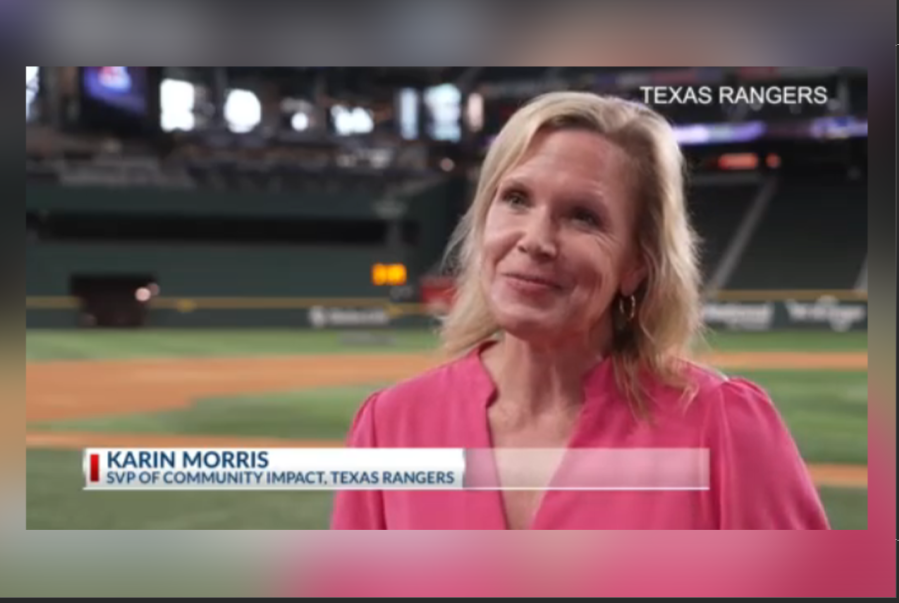

TYLER, Texas (KETK) – A number of different nonprofits in the Tyler and Longview area are looking to continue benefiting from the Texas Rangers Baseball and Softball Grant.
Tyler’s Miracle League offers inclusive baseball for young athletes
Advertisement
The Texas Rangers Foundation is committed to supporting the growth of baseball and softball by providing children with the opportunity to play in organized leagues. The foundation has been providing grants to nonprofit baseball and softball programs since 2012, donating over $1,125,000 to more than 150 organizations. Programs which previously received a grant were located in Texas, Oklahoma, Louisiana, New Mexico and Arkansas.
The foundation has previously provided grants to several East Texas baseball and softball organizations, including the Tyler Miracle League, North Tyler Youth Baseball and Van Baseball and Softball.
Here’s what you need to know: Sahara dust is making its way to East Texas
Karin Morris, the Vice President of Community Impact for the Texas Rangers, spoke about how they have already seen an impact on children in East Texas after providing multiple grants in the Tyler and Longview areas. “We have seen those investments carry forth and get more kids playing baseball and softball,” Morris said.
Advertisement
Organizations looking to apply for a grant have until June 27 at 6 p.m. To be eligible, organizations must provide baseball or softball to youths 18 years old or younger and must operate in Arkansas, Louisiana, New Mexico, Oklahoma or Texas.
Copyright 2025 Nexstar Media, Inc. All rights reserved. This material may not be published, broadcast, rewritten, or redistributed.
For the latest news, weather, sports, and streaming video, head to KETK.com | FOX51.com.
Rec Sports
Brooke County youth wins SMART529 sweepstakes | News, Sports, Jobs
COLLEGE SAVINGS — Brooke County fourth grader Kyler Tamburin was selected as the winner of West Virginia’s SMART529 “Fund the Future” sweepstakes. Wednesday morning, state Treasurer Larry Pack was in Wellsburg to recognize him and present him with a mockup of a $15,000 check. Taking part in the presentation were, from left, […]
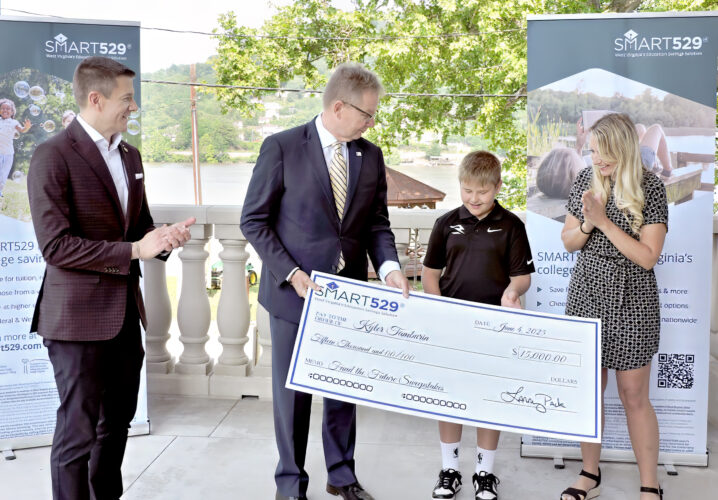

COLLEGE SAVINGS — Brooke County fourth grader Kyler Tamburin was selected as the winner of West Virginia’s SMART529 “Fund the Future” sweepstakes. Wednesday morning, state Treasurer Larry Pack was in Wellsburg to recognize him and present him with a mockup of a $15,000 check. Taking part in the presentation were, from left, state Sen. Ryan Weld, R-Wellsburg, Pack, Kyler Tamburin, and his mother, Erica Tamburin. — Craig Howell
WELLSBURG — A Brooke County youth is getting a head start in saving for his college education, after being selected as the winner of a statewide sweepstakes offered through the West Virginia Treasurer’s Office.
Kyler Tamburin, who just completed his fourth-grade year at Brooke Intermediate North and will be attending Brooke Middle School in the fall, is the recipient of $15,000 through the SMART529 “Fund the Future” sweepstakes.
“I was really, really excited when I found out,” he said about learning he had won the sweepstakes, which had entries from more than 7,200 youth throughout West Virginia.
The money will be deposited into a SMART529 savings account, which will be available to Tamburin when he is ready to attend college.
West Virginia Treasurer Larry Pack was in Wellsburg, Wednesday morning, to congratulate Tamburin and present him with a mock-up of a check in recognition of the award.
Tamburin, who noted his plans to eventually attend Penn State University to study engineering, as well as play football, said he is thinking about hanging the large check in his room.
Kyler’s mother, Erica Tamburin, said they were thankful and excited to be selected, explaining they learned of the contest through a social media post by one of the county’s school counselors.
“It was really simple to do,” she said of the application process.
Pack noted the SMART529 program was established many years ago by the West Virginia Legislature as a way to encourage families to save money to send their children to college. The program also offers an annual essay contest.
“Fund the Future” is in its second year, Pack noted, explaining the winner of the sweepstakes is selected through a random drawing.
“Thousands applied, and we basically pulled a name from a hat,” he said. “My office is happy to award Kyler and his family this money. As a father of six children, I know how important it is to save for higher education. My hope is our children will become the future leaders of our state. I would like to congratulate Kyler and applaud all of our West Virginia students who entered our sweepstakes this year.”
To be eligible for the sweepstakes, one has to be 17 years of age or younger, with the child and a parent or legal guardian residing in West Virginia. Only one entry per child is permitted, though multiple children in the same household may enter.
Rec Sports
MLB’s investment in new AUSL women’s softball league is a powerful move
The explosion of popularity in U.S. women’s sports has led Major League Baseball to an obvious conclusion: It’s time to invest in softball so that it can eventually reap the financial rewards. Unlike soccer, basketball and hockey however, baseball lacks a significant pipeline of amateur female talent in the United States. From an early age, […]
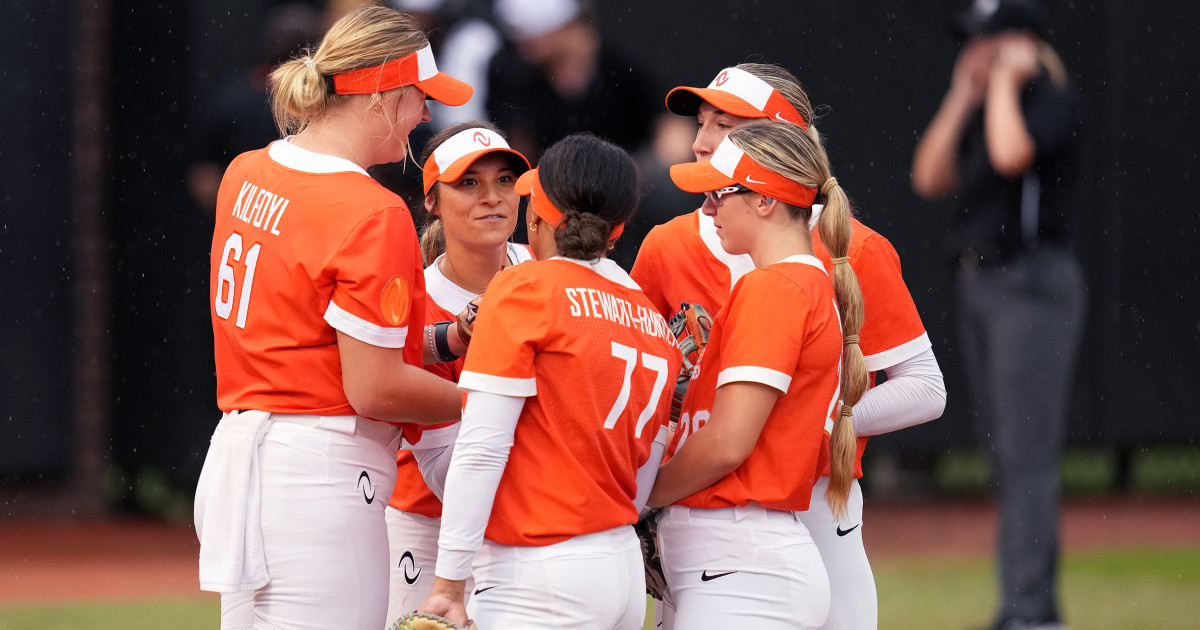
The explosion of popularity in U.S. women’s sports has led Major League Baseball to an obvious conclusion: It’s time to invest in softball so that it can eventually reap the financial rewards.
Unlike soccer, basketball and hockey however, baseball lacks a significant pipeline of amateur female talent in the United States. From an early age, girls are pushed out of baseball and into softball. Over the last few years, MLB has invested in softball development at the amateur level, but has not been involved in professional initiatives.
Unlike soccer, basketball and hockey though, baseball lacks a significant pipeline of amateur female talent in the United States.
MLB’s reason for investing its time and money into youth baseball and softball has always been about building its future bottom line. When they get kids to have an emotional connection to what they call “diamond sports,” they hope that many of them turn out to be future season ticket holders.
Baseball’s popularity in America has become increasingly regionalized and the league has, in recent years, turned an intense focus toward finding new fans and finding new sources of revenue. So, when a longtime baseball executive took over a new professional softball league in April, it only took a few weeks for MLB to claim a significant piece of the action.
MLB has invested a roughly 20% stake in the Athletes Unlimited Softball League (AUSL), per two sources. The monetary amount is not public, but those sources indicated it is around eight figures. This isn’t a tepid, philanthropic donation to an up-and-coming professional league: It’s MLB watching the skyrocketing revenues in other women’s professional leagues and taking its best opportunity to get its cut.
MLB’s investment in the AUSL isn’t just because it’s the most established professional softball league in the United States right now. It’s because the AUSL is now run by Kim Ng, a longtime MLB executive and the league’s commissioner. It is Ng’s job to use the investment from MLB and increased fan interest in women’s sports to grow the league even further.
The AUSL operates four teams, which will travel around the country in 2025 before settling in home cities in 2026. Players are paid $45,000 to $75,000 for their 24-game seasons, and ESPN will carry 33 AUSL games this season.
“We had alignment with Athletes Unlimited in our conversations for more than a year,” Noah Garden, MLB’s deputy commissioner of business and media said in a statement to MSNBC. “After the dialogue began, Athletes Unlimited brought Kim on board, which just made the fit even better. We are putting meaningful resources behind this endeavor because a rising tide lifts all boats.”
The tide is indeed rising in women’s sports.
In 2024, the WNBA announced that it had set a record in league viewership, attendance and merchandise sales. The year-over-year increases reported by the WNBA — helped by the arrival of Caitlin Clark — are mind-boggling.
The United States Women’s Soccer Team continued to be more compelling than their male equivalent, winning an Olympic gold medal for the United States after the men’s team bombed out in the quarterfinals.
Then, in 2024, ESPN reported its most-watched regular-season season of college softball since 2015. The Women’s College World Series Finals attracted 2 million viewers, up 24 percent from 2023.
This year’s Women’s College World Series (WCWS) Finals begin on Wednesday, with a three-game championship series that will be broadcast on ESPN.
Investing in the AUSL is easier than MLB creating its own softball league, as the NBA did with the WNBA back in 1996. MLB’s confidence in this specific league comes from its deep relationship with its new commissioner.
Ng, 56, played softball while attending the University of Chicago. She weighed her career options after graduating, but saw few opportunities for herself in professional sports.
“I was really intrigued by getting into sports,” Ng said in an interview with MSNBC. “There weren’t too many models that were successful for women’s sports at the time. I didn’t think that I could be in men’s sports.”
To her surprise, Ng soon found herself climbing the ranks in various positions within MLB.
Baseball is taking a big bet on its women’s equivalent, trusting its own former executive to help it cash in.
An early opportunity with the Chicago White Sox got her in the door. She then had a 30-year journey as a team executive (including for the New York Yankees). At times, she served as a high-ranking executive in MLB’s central office. Eventually, in 2020, she was hired by the Miami Marlins as their general manager — becoming the first woman in baseball’s 150-year-old history to hold that title.
Three years later, the Marlins intended to hire an executive above Ng, and she left the organization. She’d spent her entire career quietly working toward having a chance to run an MLB team. Almost as soon as she had finally arrived in that role, she was told she would be demoted to second-in-command.
Ng drifted away from baseball, and Athletes Unlimited saw its chance. She had held nearly every job imaginable in baseball front offices by that point in her career, and her reputation and experience would help get the AUSL off the ground.
Many of the most powerful people in MLB have been strong advocates for Ng throughout her career. Some are behind-the-scenes executives, but no one has been a bigger champion for Ng than Hall of Fame manager Joe Torre, who since hanging up his uniform after the 2010 season has worked in various capacities in MLB leadership. It would be difficult to find any executive whom MLB would trust more to lead a growing softball league.
Hiring Ng in April was a pivotal moment for the AUSL. Athletes Unlimited, which also operates a volleyball and basketball league, was formed in 2019. MLB had watched the league operate independently for over five years by the time it made its investment. During those five years, viewership and revenue in women’s sports has exploded.
By all metrics, women’s sports are on the rise. MLB watched the rocket launch in other sports, but has now chosen Ng and the AUSL to dig into the coffers of an untapped market. Baseball is taking a big bet on its women’s equivalent, trusting its own former executive to help it cash in.
Rec Sports
Brooke County youth wins SMART529 sweepstakes | News, Sports, Jobs
COLLEGE SAVINGS — Brooke County fourth grader Kyler Tamburin was selected as the winner of West Virginia’s SMART529 “Fund the Future” sweepstakes. Wednesday morning, state Treasurer Larry Pack was in Wellsburg to recognize him and present him with a mockup of a $15,000 check. Taking part in the presentation were, from left, […]

COLLEGE SAVINGS — Brooke County fourth grader Kyler Tamburin was selected as the winner of West Virginia’s SMART529 “Fund the Future” sweepstakes. Wednesday morning, state Treasurer Larry Pack was in Wellsburg to recognize him and present him with a mockup of a $15,000 check. Taking part in the presentation were, from left, state Sen. Ryan Weld, R-Wellsburg, Pack, Kyler Tamburin, and his mother, Erica Tamburin. — Craig Howell
WELLSBURG — A Brooke County youth is getting a head start in saving for his college education, after being selected as the winner of a statewide sweepstakes offered through the West Virginia Treasurer’s Office.
Kyler Tamburin, who just completed his fourth-grade year at Brooke Intermediate North and will be attending Brooke Middle School in the fall, is the recipient of $15,000 through the SMART529 “Fund the Future” sweepstakes.
“I was really, really excited when I found out,” he said about learning he had won the sweepstakes, which had entries from more than 7,200 youth throughout West Virginia.
The money will be deposited into a SMART529 savings account, which will be available to Tamburin when he is ready to attend college.
West Virginia Treasurer Larry Pack was in Wellsburg, Wednesday morning, to congratulate Tamburin and present him with a mock-up of a check in recognition of the award.
Tamburin, who noted his plans to eventually attend Penn State University to study engineering, as well as play football, said he is thinking about hanging the large check in his room.
Kyler’s mother, Erica Tamburin, said they were thankful and excited to be selected, explaining they learned of the contest through a social media post by one of the county’s school counselors.
“It was really simple to do,” she said of the application process.
Pack noted the SMART529 program was established many years ago by the West Virginia Legislature as a way to encourage families to save money to send their children to college. The program also offers an annual essay contest.
“Fund the Future” is in its second year, Pack noted, explaining the winner of the sweepstakes is selected through a random drawing.
“Thousands applied, and we basically pulled a name from a hat,” he said. “My office is happy to award Kyler and his family this money. As a father of six children, I know how important it is to save for higher education. My hope is our children will become the future leaders of our state. I would like to congratulate Kyler and applaud all of our West Virginia students who entered our sweepstakes this year.”
To be eligible for the sweepstakes, one has to be 17 years of age or younger, with the child and a parent or legal guardian residing in West Virginia. Only one entry per child is permitted, though multiple children in the same household may enter.
Rec Sports
Youth sports could be future for Rillito Park
TUCSON, Ariz. (13 News) – After years of running in circles over what to do with Rillito Park, youth sports enthusiasts are saying it’s time for the track to enter a different field of recreation. A presentation to the Pima County Board of Supervisors showed a vision for Rillito’s future, after a memorandum last month […]
TUCSON, Ariz. (13 News) – After years of running in circles over what to do with Rillito Park, youth sports enthusiasts are saying it’s time for the track to enter a different field of recreation.
A presentation to the Pima County Board of Supervisors showed a vision for Rillito’s future, after a memorandum last month from the county administrator explained the efforts made to get racing going won’t happen this year.
Rillito Park already has sports fields, and a presentation to the supervisors from a youth soccer advocate made the case for taking Rillito completely in that direction.
“I really do think this should be a win-win situation that we can preserve horse racing in an appropriate location, but then also develop this into a full-service park as it should be,” said Ted Schmidt, immediate past president of FC Tucson Youth and former president of Pima County Junior Soccer League.
As an advocate for youth soccer in the county, Schmidt presented to the supervisors a vision of what Rillito Park could be.
He showed drone video that was recorded above Rillito Park that showed the expanse of land that is currently sitting unused and that will likely continue to sit for the rest of 2025. The video then transitioned to the playgrounds and other public activity facilities at Naranja Park in Oro Valley as a concept of what can be done at Rillito.
“This particular location is in the heart of the population center of our community,” Schmidt said.
Earlier this year, the county requested proposals to run Rillito Park for next year’s racing season; however, out of a dozen people who did the mandatory tour in March, no one came forward.
The expense and the work would be too much. Parks and Recreation spent $40,000 on an emergency warning system for racing safety. County Administrator Jan Lesher wrote in a memorandum dated in May that future modifications to inner and outer rails and the test barn will be delayed to an undetermined future date, and while the county remains committed to re-establishing horse racing in the community, Rillito as well as other locations will be considered.
“All the fields get used so much, they’re shut down all summer because they need to let the grass revitalize, they can’t rotate the fields like they do up in Phoenix,” Schmidt explained about the need for more sports fields in the county.
He said that adding more fields would help attract tournaments because there will be more space during those critical months and that other additions would provide more family activities for everyone, as shown in the video that he presented to supervisors.
Rillito already has some fields for youth sports.
“This is a taste of where I think we’re ultimately going to end up when we put pencil to paper and have an actual plan for moving forward,” he said.
Schmidt said that he expects a more specific vision will be shown to supervisors soon, possibly by the end of summer.
Be sure to subscribe to the 13 News YouTube channel: www.youtube.com/@13newskold
Copyright 2025 13 News. All rights reserved.
-

 College Sports2 weeks ago
College Sports2 weeks agoPortal Update – Basketball and Gymnastics Take Hits
-

 College Sports2 weeks ago
College Sports2 weeks agoPortal Update – Basketball and Gymnastics Take Hits
-

 Professional Sports2 weeks ago
Professional Sports2 weeks agoJon Jones answers UFC retirement speculation as fans accuse champion of 'holding the belt …
-

 NIL1 week ago
NIL1 week ago2025 NCAA Softball Tournament Bracket: Women’s College World Series bracket, schedule set
-

 Health2 weeks ago
Health2 weeks agoBYU women's basketball guard injures ACL twice
-
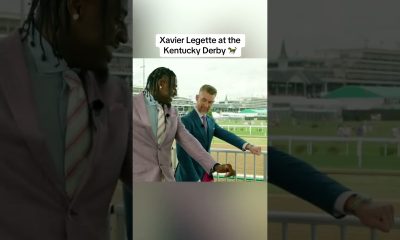
 Youtube2 weeks ago
Youtube2 weeks agoXavier Legette taught Marty Smith his signature celly
-
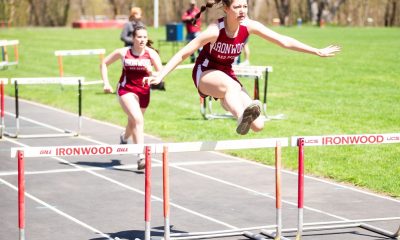
 High School Sports2 weeks ago
High School Sports2 weeks agoToday in the MHSAA
-

 Motorsports2 weeks ago
Motorsports2 weeks agoWhy IHOP Rode With Dale Earnhardt Jr. In Amazon NASCAR Debut
-

 College Sports2 weeks ago
College Sports2 weeks agoNCDC Commitment Profiles: Cyclones’ Martins Moving On to Saint Anselm College • USPHL
-

 Health3 weeks ago
Health3 weeks agoNew training facility opens in Reading for athletes' mental and physical advancement



































